Roe v. Wade, 410 U.S. 113 (1973), was a landmark decision of the U.S. Supreme Court in which the Court ruled that the Constitution of the United States generally protected a right to have an abortion. The decision struck down many abortion laws, and caused an ongoing abortion debate in the United States about whether, or to what extent, abortion should be legal, who should decide the legality of abortion, and what the role of moral and religious views in the political sphere should be. The decision also shaped debate concerning which methods the Supreme Court should use in constitutional adjudication. The Supreme Court overruled Roe in 2022, ending the constitutional right to abortion.

Norma Leah Nelson McCorvey, also known by the pseudonym "Jane Roe", was the plaintiff in the landmark American legal case Roe v. Wade in which the U.S. Supreme Court ruled in 1973 that individual state laws banning abortion were unconstitutional.
Planned Parenthood v. Casey, 505 U.S. 833 (1992), was a landmark decision of the Supreme Court of the United States in which the Court upheld the right to have an abortion as established by the "essential holding" of Roe v. Wade (1973) and issued as its "key judgment" the restoration of the undue burden standard when evaluating state-imposed restrictions on that right. Both the essential holding of Roe and the key judgment of Casey were overturned by the Supreme Court in 2022, with its landmark decision in Dobbs v. Jackson Women's Health Organization.
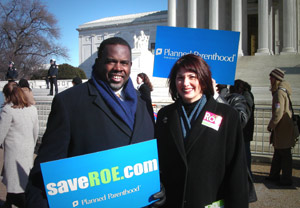
The United States abortion-rights movement is a sociopolitical movement in the United States supporting the view that a woman should have the legal right to an elective abortion, meaning the right to terminate her pregnancy, and is part of a broader global abortion-rights movement. The movement consists of a variety of organizations, with no single centralized decision-making body.

In the United States, abortion is a divisive issue in politics and culture wars, though a majority of Americans support access to abortion. Abortion laws vary widely from state to state.
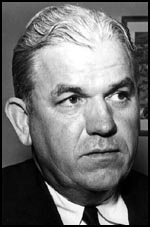
Henry Menasco Wade was an American lawyer who served as district attorney of Dallas County from 1951 to 1987. He participated in two notable U.S. court cases of the 20th century: the prosecution of Jack Ruby for killing Lee Harvey Oswald, and the U.S. Supreme Court case that held abortion was a constitutional right, Roe v. Wade. In addition, Wade was district attorney when Randall Dale Adams, the subject of the 1988 documentary film The Thin Blue Line, was wrongfully convicted in the murder of Robert Wood, a Dallas police officer.
Webster v. Reproductive Health Services, 492 U.S. 490 (1989), was a United States Supreme Court decision on upholding a Missouri law that imposed restrictions on the use of state funds, facilities, and employees in performing, assisting with, or counseling an abortion. The Supreme Court in Webster allowed for states to legislate in an aspect that had previously been thought to be forbidden under Roe v. Wade (1973).

Sarah Catherine Ragle Weddington was an American attorney, law professor, advocate for women's rights and reproductive health, and member of the Texas House of Representatives. She was best known for representing "Jane Roe" in the landmark Roe v. Wade case before the United States Supreme Court. She also was the first female General Counsel for the US Department of Agriculture.
Doe v. Bolton, 410 U.S. 179 (1973), was a decision of the Supreme Court of the United States overturning the abortion law of Georgia. The Supreme Court's decision was released on January 22, 1973, the same day as the decision in the better-known case of Roe v. Wade.

McCorvey v. Hill, 385 F.3d 846, was a case in which the original litigant in Roe v. Wade, Norma McCorvey, also known as 'Jane Roe', requested the overturning of Roe. The U.S. Court of Appeals for the Fifth Circuit ruled that McCorvey could not do this; the United States Supreme Court denied certiorari on February 22, 2005, rendering the opinion of the Fifth Circuit final. The opinion for the Fifth Circuit was written by Judge Edith Jones, who also filed a concurrence to her opinion for the court.
Virginia Bulkley Whitehill was an American civil rights activist and women's rights advocate from Dallas, Texas, best known for her work in support of securing the legal right of women to control their reproduction. Whitehill was present at the U.S. Supreme Court during the Roe v. Wade court case that confirmed the legality of abortion.
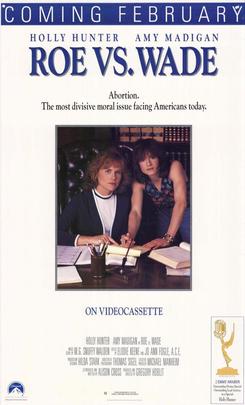
Roe vs. Wade is a 1989 television film written by Alison Cross about the landmark 1973 United States Supreme Court decision Roe v. Wade. It was directed by Gregory Hoblit and stars Holly Hunter and Amy Madigan.
Abortion in Texas is illegal in most cases. There are nominally exceptions to save the mother's life, or prevent "substantial impairment of major bodily function", but the law on abortion in Texas is written in such an ambiguous way that life-threatening or harmful pregnancies do not explicitly constitute an exception. Attempts to clarify and codify these exceptions into law have been rejected by Republican lawmakers in Texas.
Abortion in the U.S. state of Virginia is legal up to the end of the second trimester of a pregnancy. Before the year 1900, abortion remained largely illegal in Virginia, reflecting a widespread trend in many U.S. states during the 19th and early 20th centuries. Abortion was viewed as a criminal act and subject to state laws that prohibited it. However, by 1950, Virginia introduced a legal therapeutic exception, allowing for abortion under specific circumstances, primarily when a woman's physical or mental health was at risk. Notably, the University of Virginia Hospital established a review board in 1950 responsible for evaluating and approving abortion requests, particularly those grounded in psychiatric reasons. This thorough approval process resulted in a significant decrease in the number of abortions performed at the hospital.
Abortion in Puerto Rico is technically prohibited on request, although it is de facto allowed without a clear limit. On June 22, 2022, the Senate passed a bill limiting abortion to 22 weeks, with exceptions for danger to the mother's life, fetal defects, and if the fetus would not be viable. The bill will need to be considered by the House.
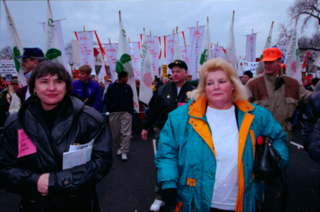
Sandra Cano, better known by the legal pseudonym "Mary Doe," was the plaintiff in the lawsuit case Doe v. Bolton (1970), the companion case to Roe v. Wade (1973) which legalized abortion in the United States. Cano held anti-abortion views and claimed she had been manipulated by her lawyer, Margie Pitts Hames. She repeatedly attempted to have the decision overturned. She also undertook anti-abortion activism, with Norma Jane McCorvey among others, and filed a Friend of the Court brief seeking to limit partial birth abortions.
Dobbs v. Jackson Women's Health Organization, 597 U.S. 215 (2022), is a landmark decision of the U.S. Supreme Court in which the court held that the Constitution of the United States does not confer a right to abortion. The court's decision overruled both Roe v. Wade (1973) and Planned Parenthood v. Casey (1992), returning to the federal and state legislatures the power to regulate any aspect of abortion not protected by federal statutory law.
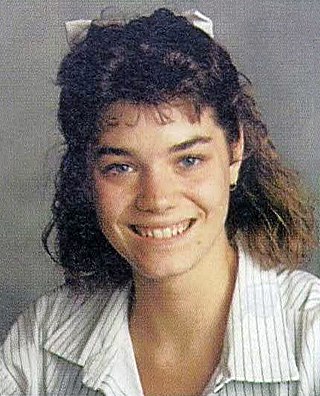
Shelley Lynn Thornton is the biological daughter of Norma McCorvey. Also referred to by the pseudonym "Roe Baby", Thornton is the child at the center of the 1973 U.S. Supreme Court decision, Roe v. Wade. Her identity was not publicly known until 2021.

The Family Roe: An American Story is a 2021 book, written by Joshua Prager. The book is a biographical account of Norma McCorvey, known as "Jane Roe" in the 1973 landmark U.S. Supreme Court decision Roe v. Wade. The Roe case, which established a woman's constitutional right to an abortion, is one of the most controversial opinions in American jurisprudence. The Family Roe was a finalist for the 2022 Pulitzer Prize for General Nonfiction.
On December 13, 1971, during oral arguments before the United States Supreme Court in the abortion rights case Roe v. Wade, Texas assistant attorney general Jay Floyd prefaced his remarks with a reference to his opposing counsel, Sarah Weddington and Linda Coffee: "It's an old joke, but when a man argues against two beautiful ladies like this, they are going to have the last word." The joke was met with silence in the courtroom and, according to abortion rights lawyer Margie Pitts Hames, visible resentment from Chief Justice Warren E. Burger. Widely viewed as sexist and often considered "the worst joke in legal history", Floyd's attempt at humor has been cited by commentators including Justice Antonin Scalia as a cautionary tale about comedy in court.










